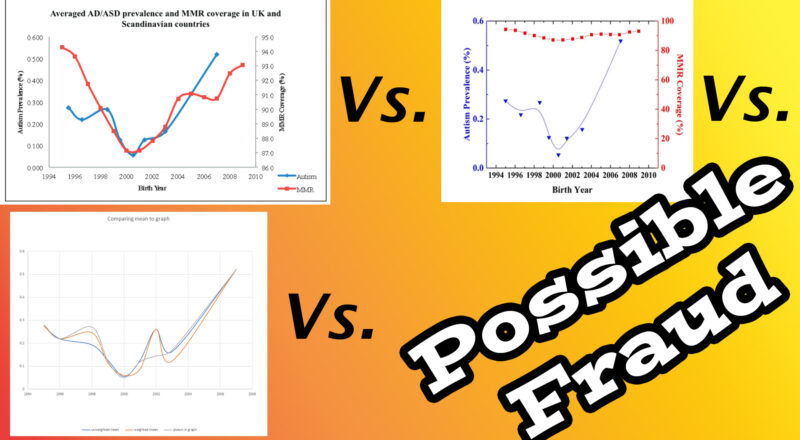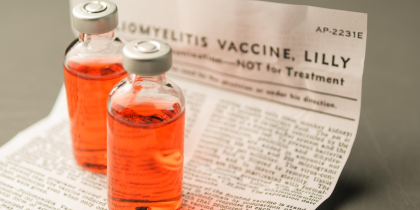On Wednesday, I wrote about some moral theology principles on vaccines. I showed several points. Diseases are physical evils and vaccines thus relate to the most fundamental principles of moral theology. Vaccines are ordinary means so have a general obligation. There I briefly mentioned the social doctrine of the Church, but noted I would go more in-depth in this follow-up. This piece will mainly quote and analyze someone else’s work. A scientist and a philosopher (Paul J. Carson & Anthony T. Flood) wrote an article titled “Catholic Social Teaching and the Duty to Vaccinate” for The American Journal of Bioethics in 2017.
They have four main parts. The first is basically about the astronomically remote connection to abortion. As I’ve covered this extensively already, I won’t cite this section. Their other three points relate to coverup claims, collective action, and social doctrine. At the end, I will address an objection around the words “voluntary” and “obligation” in the CDF statement.
Coverup Claims
Their second point is about how it is not reasonable to believe the wild coverup narrative.
To the vaccine skeptics who are prone to viewing vaccine promotion as driven by some sort of mass collusion between government, industry, and the medical profession for the sake of profiteering and scientific opportunism over the desire to save lives and help people, we feel there is little to say. Beyond the somewhat fanciful notion that such a collusion on such a scale could even practically take place, impugning wholesale the individuals working in the broad medical, scientific, corporate, and public health fields in such a way is uncharitable at best and deeply offensive at worst. That said, the skepticism of persons troubled by changing scientific paradigms and past mishaps in public health warrants a serious response…
There is overwhelming support from the broader scientific, medical, and public health communities that vaccines are indeed safe and have been an incredible tool in the reduction of illness and death from numerous dis-eases. It is estimated that vaccination of each U.S. birth cohort with the current childhood immunization schedule prevents approximately 42,000 deaths and 20 million cases of disease, with a net savings of nearly $14 billion in direct costs and $69 billion in total societal costs (CDC 1999).
They point out two main issues. The proposed collusion and conspiracy are so large that the probability is so small as to be considered zero. Plus, the main goal of more money for the medical industry seems to be just the opposite: we pay less for them than the disease they prevent would make medical companies. Although Catholics are not required to believe the reasonable, overwhelming majority, and highly probable opinion of science, it should be a kind of default. This is all the more true when it presents no issues with the faith which is the case with vaccination.
Collective Action

Vaccines are about collective action. A bunch of us vaccinating can easily prevent someone else’s death.
They note that an issue with vaccines is the greatest effect of vaccines comes when herd immunity is achieved as then the disease completely dies out in that population. Even if we don’t reach this level, we often vaccinate for the sake of others, more than for our own good alone. They note a study on the flu vaccine: “It was shown that counties with immunization rates ≥31% in their healthy young population had a 20.6% decrease in influenza diagnosis in the elderly compared to counties with ≤15% immunization rates.” Sure, my risk of death from flu is minuscule, but I get an annual flu vaccine as I don’t want to accidentally infect some elderly Catholic at Mass or on a sick visit.
Even those who don’t vaccinate enjoy the benefits of vaccination. 75 years ago, almost everyone got measles as it was passed around so easily before vaccines. But today, even an unvaccinated child has a decent chance of avoiding measles because most around them are vaccinated so can’t give them measles. We should avoid such free-loading: let’s contribute to the common good, not just take from it.
The Duty to Vaccinate
Carson and Flood go further arguing there is a positive duty to vaccinate in most cases following Catholic Social Teaching. They begin with #165 from the Compendium of Social Doctrine: “A society that wishes and intends to remain at the service of the human being at every level is a society that has the common good — the good of all people and of the whole person— as its primary goal. The human person cannot find fulfillment in himself, that is, apart from the fact that he exists ‘with’ others and ‘for’ others.” In seeking the common good, we cannot ignore our place in society and in connection to others. They note that it follows from this that we have certain duties which “involve certain acts performed for the benefit of others, even at the expense of one’s own self-interest and private goals.” This is solidarity.
They then refer to justice and love as principles flowing from solidarity. “Justice… pertains to giving each person what is due to him or her. Love, in turn, builds upon justice. Justice fulfills one’s minimal ethical demands toward another, whereas love goes further by actively seeking the good of the other as other and the common good of all.”
Then they conclude:
In the context of vaccination, these principles and values entail a duty to vaccinate. By not vaccinating ourselves and our children, we forsake solidarity with our neighbors and commitment to the common good in three ways. First, refusing vaccination violates the requirements of personal justice insofar as the act fails to give others their due. Put positively, if a minimal risk on our part greatly decreases the health risks of the vulnerable, we owe it to them to do so. Second, failing to vaccinate acts against distributive justice. The protection against serious infectious diseases constitutes a good that requires a just distribution across society. The vulnerable have a just claim to this good and that entails that those who can receive vaccines should do so. Third, refusing vaccination acts contrary to the civic and political love that should be shown to all.
This gives strong reason for Catholics to vaccinate. Each of the three reasons might be sufficient on its own to encourage vaccination and make it the default, but put together, they form an even stronger argument.
“Voluntary” / “Obligation”
Some are probably already ready with this objection. The CDF says, “Practical reason makes evident that vaccination is not, as a rule, a moral obligation and that, therefore, it must be voluntary.”
- First, “voluntary” does not imply without consequences, or without a morally right option. The Church teaches religion must be voluntary but also teaches everyone should be Catholic. (A properly formed conscience would result in a person becoming Catholic.)
- Second, “as a rule” modifies it so it is not absolute. A parallel example: “as a rule,” we should stay on the right side of the road (in Canada & the USA), but we can all think of cases it’s moral to cross the center line.
- Third, one may think there is a contradiction about the word “obligation.” However, there is a clear distinction between a general obligation and an absolute obligation. The Vatican is saying there is not absolute obligation while Carson, Flood and I are stating there is a general obligation. These are not in contradiction. A general obligation can admit of certain rare exceptions. For example, CCC 2042 lists a precept of the Church: “You shall attend Mass on Sundays and holy days of obligation and rest from servile labor.” This is a general obligation. If you are sick or if you go hiking in the wilderness for two weeks for vacation and are over a day’s journey from any Masses the Sunday during that journey, you are not obliged.
Thus, there is no contradiction between these two pieces and the CDF or between the CDF and Francis’s strong encouragement to vaccinate.
Conclusion
These two pieces (part 1) have explored the general obligation to vaccinate. They conclude that getting all recommended vaccines should be the default for Catholics. Vaccines support both the individual and common goods of disease prevention at a very low risk. Vaccinating is an objectively good act for the individual and promotes the common good through solidarity, justice, and love. Recommended vaccines are ordinary means, which means they are generally obliged. (This does not make them absolutely obligatory or contradict that they are voluntary.) To argue that one is doing right by not vaccinating, one would need to provide stronger arguments for the immorality of the act. The only cases I’ve seen for such a claim relied on demonstrably inaccurate information about vaccines, and it seems highly unlikely such an argument can be made based on accurate data.
The default for Catholics is to get all recommended vaccines. Vaccines save lives and we should be interested in saving lives. I say with Pope Francis: “I believe that ethically everyone should take the vaccine.”










If you want to make a comment, please stay on topic.
The overall science that vaccines are much lower risk that vaccine preventable disease for all approved vaccines has been shown with overwhelming evidence. I have debated it before but comments debating that will not be approved here as I feel a duty to my readers not to leave false or misleading comments without reply and I don’t have the time to reply. I have replied before on these points extensively and every claim anyone has presented me with has failed with even my basic research.
[…] EDIT: part 2, The Duty to Vaccinate in Catholic Social Teaching. […]